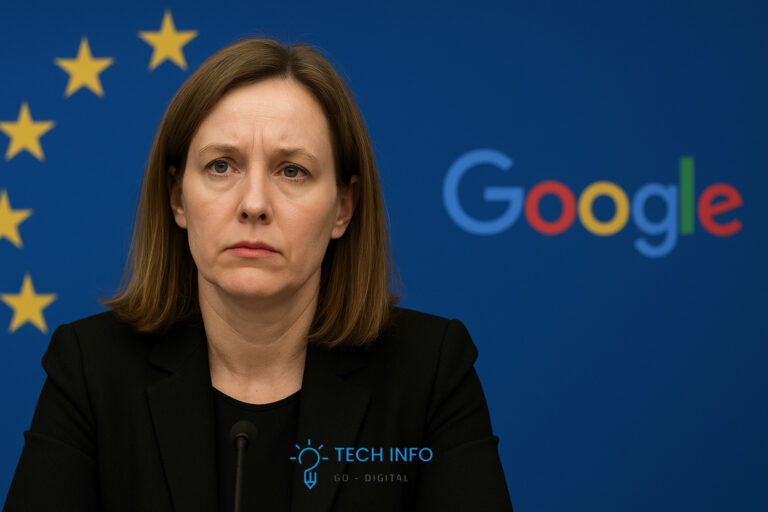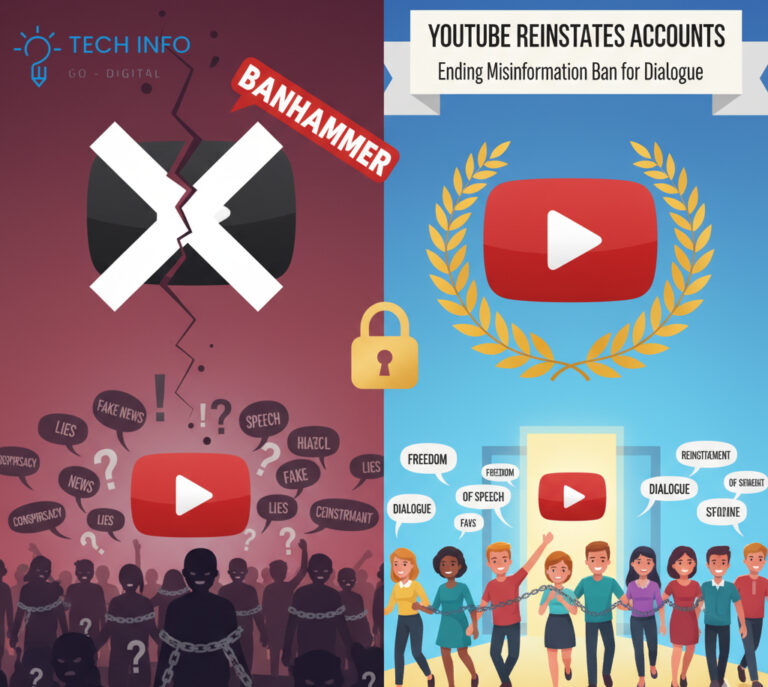Table of Contents
ToggleThe Hammer Falls: EU’s $3.5B AdTech Fine and the Fight for a Fair Web
The world’s most powerful digital gatekeeper has been found guilty of rigging the game. Again. The European Union’s staggering $3.5 billion fine against Google for anti-competitive “abuse” in its advertising technology stack isn’t just a financial penalty; it’s a direct challenge to the very foundations of the modern internet’s economy.
For nearly two decades, the online world has run on a simple, often invisible fuel: advertising. Websites from major publishers to small blogs rely on the complex, lightning-fast ecosystem of AdTech to generate revenue. At the very center of this ecosystem sits Google, a behemoth so powerful that it controls almost every facet of the chain. Now, European regulators have declared that this dominance has crossed the line into illegal abuse, issuing a monumental fine and demanding structural changes that could reshape the digital landscape.
This isn’t just another regulatory skirmish. It’s a watershed moment that asks a fundamental question: can the internet thrive when one company owns the stadium, the teams, the broadcasting rights, and the rules of the game?
The “Abuse of Dominance“: How Google Rigged the Game
To understand the $3.5 billion fine, you must first understand the AdTech labyrinth. When you visit a website, an auction happens in milliseconds to determine which ad you see. This involves:
- The Publisher Ad Server (e.g., a news website choosing which ad network to use).
- The Sell-Side Platform (SSP) (helping publishers sell ad space).
- The Buy-Side Platform (DSP) (helping advertisers buy ad space).
- The Ad Exchange (the digital marketplace where the auction happens).
Google owns the dominant product in every single one of these categories: Google Ad Manager (publisher ad server & SSP), Google Ads (DSP), and Google AdX (the largest exchange). The European Commission’s investigation alleged that Google used this unparalleled vertical integration not to create efficiency, but to illegally squash competition and cement its monopoly.
The charges are specific and damning:
- Self-Preferencing AdX: The Commission found that Google granted its own ad exchange, AdX, privileged access to the bidding data and requests coming from its publisher ad server, Google Ad Manager. This meant AdX had a “first look” advantage and could always submit the most competitive bid, unfairly disadvantaging rival exchanges.
- Stifling Rival SSPs: Google was accused of structuring its Ad Manager platform to favor its own SSP services over those of competitors. This made it incredibly difficult for other SSPs to compete on an equal footing, effectively forcing publishers to use Google’s tools to get the best value.
- Creating an Unassailable Ecosystem: By controlling the key entry points for both publishers and advertisers, Google created a “walled garden” that was nearly impossible to compete with. The message was clear: to get the best reach and the best prices, you had to play entirely within Google’s sandbox, using its rules and paying its fees at every turn.
This conduct, regulators argue, allowed Google to levy famously high fees—often taking a cut of 30% or more from a single ad transaction as it moved through its own intertwined services. This “tax” ultimately starved publishers of revenue and inflated costs for advertisers, all while stifling innovation from any potential competitor.
The Ripple Effect: Publishers, Advertisers, and the Open Web
The consequences of Google’s AdTech dominance are not abstract; they are felt by every participant in the digital economy.
- For Publishers: News outlets and content creators saw their profit margins evaporate. With Google taking such a significant cut of every ad dollar, it became increasingly difficult to fund quality journalism and content production. Many have argued that Google’s practices directly contributed to the financial decline of the news industry.
- For Advertisers: Brands and marketers faced higher costs for digital ads. The lack of real competition meant Google could maintain high fees, costs that are eventually passed on to consumers.
- For Competitors: Innovative AdTech startups were snuffed out before they could ever gain a foothold. Why would a publisher try a new, potentially better SSP if it was structurally disadvantaged within the dominant ad server?
This case is about more than money; it’s about the health of the open web. A competitive market would foster innovation, lower fees, and create a more diverse ecosystem of tools and services. Google’s monopoly, regulators contend, has done the opposite.
Google’s Response and the “Status Quo” Playbook
Google’s response has been a masterclass in corporate deflection. The company has stated it “disagrees with the EC’s decision” and will appeal, arguing that its AdTech services help thousands of businesses and publishers thrive in a competitive landscape.
This is a familiar playbook. Google has faced over $9 billion in EU fines in the past decade for various anti-competitive practices, from skewing shopping search results to abusing its Android mobile OS dominance. The appeals process for this latest fine could drag on for years, allowing the lucrative status quo to remain in place for the foreseeable future.
The company may eventually offer minor concessions or settle, as it has done before. But the core issue—its overwhelming control of every layer of the AdTech stack—remains unaddressed.
Beyond the Fine: A Demand for Structural Change
The most significant aspect of this ruling is not the record-breaking fine—though $3.5 billion is undoubtedly a staggering sum. The true bombshell is the EU’s demand for structural change.
Regulators have ordered Google to divest parts of its AdTech business to break up its conflict-ridden, vertically integrated monopoly. They are effectively telling Google it can no longer be the umpire, the star player, and the owner of the stadium all at once.
This move towards a potential breakup is a radical escalation. It signals that regulators have lost patience with behavioral remedies and slaps on the wrist. They are now willing to pursue the corporate equivalent of surgery to restore competitive balance.
A Global Precedent in the Making
The EU’s decision does not exist in a vacuum. The U.S. Department of Justice is pursuing its own parallel antitrust lawsuit against Google’s AdTech monopoly, and other jurisdictions are watching closely. The EU has once again positioned itself as the world’s de facto tech regulator, setting a global standard for how to confront Big Tech’s power.
The outcome of this case will set a crucial precedent. If Google successfully appeals and weakens the ruling, it will embolden other tech giants and reinforce the dominance of existing gatekeepers. If the EU’s demands for divestment are upheld, it could unleash a wave of long-overdue innovation and competition in the digital advertising market.
The Bottom Line
The EU’s $3.5 billion fine is a powerful statement: the era of unchecked digital monopoly is over. While the financial penalty makes headlines, the real story is the fight for the soul of the internet’s economy. It’s a battle between a walled garden that benefits one company and an open, competitive web that benefits publishers, advertisers, and users alike.
The appeal will be long, and the road to true change will be even longer. But for the first time in a long time, the hammer has fallen with enough force to suggest that the walls, however tall, might finally be starting to crack.





